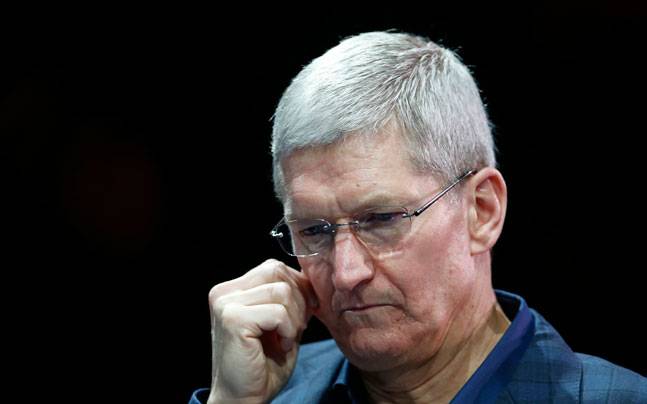[GUEST ACCESS MODE: Data is scrambled or limited to provide examples. Make requests using your API key to unlock full data. Check https://lunarcrush.ai/auth for authentication information.]  Arnaud Bertrand [@RnaudBertrand](/creator/twitter/RnaudBertrand) on x 340.3K followers Created: 2025-04-03 16:06:42 UTC Thinking about it, ironically maybe the biggest victims of the Trump tariffs may end up being American companies. Take Apple for instance. These guys have spent decades building incredibly complex global supply chains that span dozens of countries. They can't just flip a switch and move everything back to America. Their supply network represents tens of billions in investment, thousands of supplier relationships, and logistics systems perfected over decades. Dismantling this overnight is impossible, and building a comparable domestic alternative - which is the stated goal of the Trump tariffs - would take 5-10 years minimum, cost extortionate amounts of money and would increase their product costs considerably. Meanwhile, their competitors like Samsung or Xiaomi face no such pressures in their countries. They can continue operating their established supply chains while Apple is forced to reorganize, which gives them a significant market advantage. Apple could also, of course, choose to leave everything in place and wait it out. But even in this scenario, they'd be forced to either absorb massive tariff costs—potentially billions annually—or pass those costs on to American consumers through higher prices. Either way, their profitability and competitive position takes a serious hit. Trump is undoubtedly trying to emulate China here, who's succeeded at having their supply chains domestically. But the way they did so was through comprehensive, decades-long economic planning with massive government investments in infrastructure, education, and R&D. Most importantly, they created largely predictable and consistent policies that companies could confidently build long-term strategies around. The exact opposite of Trump who is so unpredictable no-one knows what he'll come up with tomorrow... At the end of the day he's looking for a silver bullet where there just isn't one. And he might have instead shot U.S. companies in the foot while other countries continue investing in the patient, strategic approach that actually works.  XXXXXXX engagements  **Related Topics** [investment](/topic/investment) [billions](/topic/billions) [united states](/topic/united-states) [countries](/topic/countries) [tariffs](/topic/tariffs) [donald trump](/topic/donald-trump) [Post Link](https://x.com/RnaudBertrand/status/1907827106337452168)
[GUEST ACCESS MODE: Data is scrambled or limited to provide examples. Make requests using your API key to unlock full data. Check https://lunarcrush.ai/auth for authentication information.]
 Arnaud Bertrand @RnaudBertrand on x 340.3K followers
Created: 2025-04-03 16:06:42 UTC
Arnaud Bertrand @RnaudBertrand on x 340.3K followers
Created: 2025-04-03 16:06:42 UTC
Thinking about it, ironically maybe the biggest victims of the Trump tariffs may end up being American companies.
Take Apple for instance. These guys have spent decades building incredibly complex global supply chains that span dozens of countries.
They can't just flip a switch and move everything back to America. Their supply network represents tens of billions in investment, thousands of supplier relationships, and logistics systems perfected over decades.
Dismantling this overnight is impossible, and building a comparable domestic alternative - which is the stated goal of the Trump tariffs - would take 5-10 years minimum, cost extortionate amounts of money and would increase their product costs considerably.
Meanwhile, their competitors like Samsung or Xiaomi face no such pressures in their countries. They can continue operating their established supply chains while Apple is forced to reorganize, which gives them a significant market advantage.
Apple could also, of course, choose to leave everything in place and wait it out. But even in this scenario, they'd be forced to either absorb massive tariff costs—potentially billions annually—or pass those costs on to American consumers through higher prices.
Either way, their profitability and competitive position takes a serious hit.
Trump is undoubtedly trying to emulate China here, who's succeeded at having their supply chains domestically.
But the way they did so was through comprehensive, decades-long economic planning with massive government investments in infrastructure, education, and R&D.
Most importantly, they created largely predictable and consistent policies that companies could confidently build long-term strategies around.
The exact opposite of Trump who is so unpredictable no-one knows what he'll come up with tomorrow...
At the end of the day he's looking for a silver bullet where there just isn't one.
And he might have instead shot U.S. companies in the foot while other countries continue investing in the patient, strategic approach that actually works.

XXXXXXX engagements
Related Topics investment billions united states countries tariffs donald trump